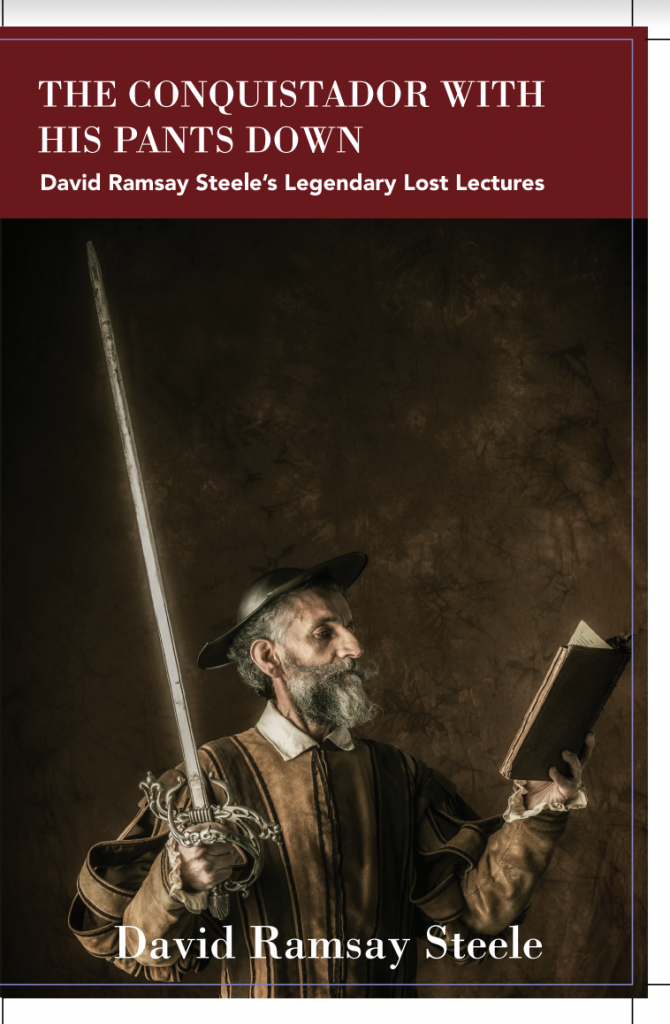Ep. 313 David Ramsay Steele on the Spirit World and George Orwell

David Ramsay Steele has a new collection of essays out, and he joins Bob to discuss. Much of the conversation focuses on whether it makes sense to believe in spirits, as well as the life and changing views of George Orwell.
Mentioned in the Episode and Other Links of Interest:
- The YouTube version of this interview.
- The Amazon entry for DRS’s new book.
- Why Machines Will Never Rule the World (referenced by the guest).
- Help support the Bob Murphy Show.

Fun conversation, especially on Orwell. As for Peterson, I realized long ago that he would not produce an airtight, coherent framework. Rather, I think he is very useful, somewhat like Ravi Zacharias, for idea generation. Both overflow in images and words which then should be submitted to rational analysis.
Enjoyed this. There’s a glancing reference to Kant on knowledge of reality during the Peterson segment. I may have posted this before, but it’s really worth watching this video of the late Roger Scruton summarising Kant on the inescapability of subjectivity.
https://www.youtube.com/watch?v=k7EvvkrX9D0
I reckon you had him cornered when he started out not believing in spirits, claimed that even if there was a tangible effect of the spirit then by definition must be material … and then afterwards says, but hey mind is more than just the brain. Those two perspectives cannot be reconciled.
Empiricism does not imply dogmatic reductionism.
The mind/body question is only a subset of the general question of building any complex creation out of material parts. Of course, in any system, as more variables are added, additional properties will emerge that did not exist in the simpler system. Consider that you can only have a chaotic set of differential equations is you have at least three variables … at least that’s my understanding. So there’s this entire world of two-variable differential equations where the phenomenon of chaos simply doesn’t show up at all. Then you whack in one more variable and you end up wrangling with a whole new concept.
To put that a different way: the way you arrange the parts is itself a material component of the system, and this should not be seen as weird of spiritual … it’s a consequence of information science. Maybe the best quote is from Robert M. Pirsig (Zen and the Art of Motorcycle Maintenance)
These days I mostly drive a HiLux … but suppose a friend parked his motorbike alongside my pickup. They are both made of steel, and a few other things, but essentially the same material components. Can we say there is a “spirit of motorcycle” that occupies the bike, and perhaps a “spirit of pickup truck” occupying the other machine?
What about if some other guy pulls up with a scooter, does that have a weaker, “Spirit of motorcycle ” or a completely distinct, “Spirit of scooter” ? Then some Italian parks a three wheeler Piaggio Ape and we all look and wonder … is it a scooter, a pickup, what the heck is that thing? Concepts worked out in steel, that’s what it is … same steel but slightly different concepts
Getting back to the mind/brain question … the mind is the brain, but it’s not the reductionist collection of tiny cells, it’s the full set of cells including how they all fit together into a whole piece. Neither the mind, nor the brain can work if those cells are all disconnected from each other. Indeed even a small dislocation in the brain has a substantial consequence for how the mind works.
That’s why the “Chinese Room” argument is nonsense … it’s a massive confusion between the material concept of the whole system operating as a complete unit, as compared with the parts that this thing is built out of. Like if you build a motorcycle with a fibreglass frame, it still has “Spirit of motorcycle” despite most of the steel being removed.